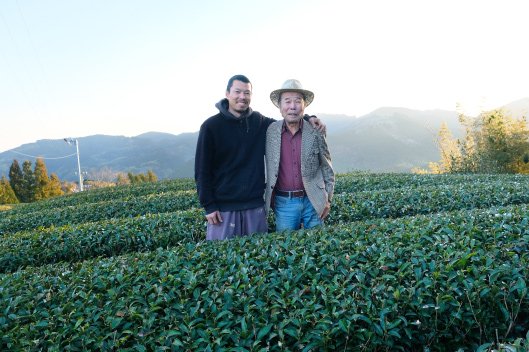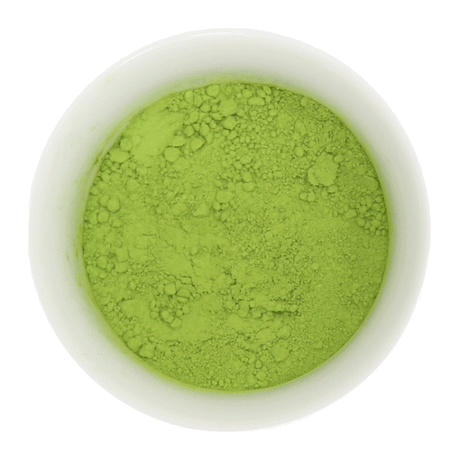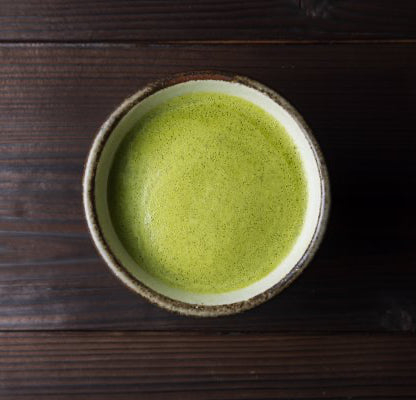
NaturaliTea
(22 products)
-
Introduction
-
NaturaliTea is a private cooperative of farmers managed by the Kinezuka family, whose own tea fields produce over 30% of the cooperative's teas. Based in the hills of Fujieda, Shizuoka, the cooperative was established in 1976 by Toshiaki Kinezuka, before the word for "organic" was invented in Japan. Pioneers in organic tea farming, the family and its partner farms have developed techniques together to grow high quality tea, rice, and vegetables without the use of pesticides or synthetic fertilizers.
-
Our History & Info
-
Over 40 years ago, Toshiaki Kinezuka started the Hito to No, Shizen wo Tsunagu Kai 人と農、自然をつなぐ会, which translates to Society Connecting People, Agriculture and Nature. Gathering other farmers of tea and other crops, together they researched how to grow tea, rice, fruits and other crops without using pesticides. It was a revolutionary idea at the time, and they had never heard of the term "organic".
Today, his children, Tamiko, and Kazuki, and their spouses, are continuing the family business as the youngest farmers in the cooperative, with the family's tea making up over 20% of the coop's tea products.
In expanding their brand recognition overseas, Ian (Yunomi Merchant), helped the family to create the brand name NaturaliTea, and their website NaturaliTea.com (now managed directly by the family). In return, Yunomi has benefited greatly from their expertise and support, and continues to recommend NaturaliTea's products as one of the best examples of organic tea farming.
Company Info
- Location: 1416-3 Takizawa Fujieda-shi, Shizuoka 426-0134, JAPAN View Google Map
- Established: 1976
- Operation: In addition to their own fields, the Kinezuka family’s company has partnerships with over thirty other neighboring farmers to both research organic farming techniques and work together to produce tea leaves and other crops. Leaves are then aggregated and processed into the products below.
-
Farming Philosophy -
A good farmer knows that to produce good crops, one must first develop good soil. Thus, the taste of good organic tea is made half of tea leaves and half of the hearts of their farmers.
The philosophy that has driven Toshiaki Kinezuka for nearly four decades can be summed up by this statement: "A good farmer knows that to produce good crops, one must first develop good soil.
Thus, the taste of good organic tea is made half of tea leaves and half of the hearts of their farmers."
What many people don't realize however, is that soil development and even further, development of the macro environment of a farm is a decade long process. The balance between people, agriculture and nature is a delicate one, but when carefully cultivated, nature actually takes care of itself...predatory insects such as spiders keep pests in check, the tea plants are strengthened against disease, and the soil's balance produces the nutrients necessary to create delicious tea.
This balance is also how we farmers used to farm our crops, before modern science introduced artificial chemicals and pesticides. You might say that this philosophy is a return to traditional agriculture.
Modern agriculture though, has unfortunately forgotten what was once obvious to our ancestors. Instead, we return to the roots of agriculture as we develop not only our tea fields, but work to involve nearly thirty farmers in the region to produce an environment conducive to the highest quality tea through truly traditional organic farming methods.
Soil Development | 土作り
In order produce good agricultural products, a good farmer knows that he must first develop good soil. Good soil is developed by utilizing organic fertilizer and compost, increasing the animals in the soil such as earthworms and microorganisms, whose activity decomposes organic material into nutrients that can be absorbed by plants. Tea plants rooted in soil that is fertile and fluffy grow strong roots, and produce healthy, high quality tea leaves.
Ecosystem | 生態系
To farm organically, means of course to avoid using pesticides and chemicals, but also means to place importance on the ecological balance of nature as well as our co-existence with nature. A pesticide-free tea field is a very busy place with insects and the animals that prey on those insects such as ladybugs, spiders, frogs, snakes, and birds. There are even wild boars that come to eat earthworms. Managing this balance however does not mean destroying it with pesticides, but learning to utilize the power of nature to grow healthy plants.
Cooperation | 仲間づくり
The creation of organic tea requires good partners. With our partners we exchange information about the management of the tea fields and to improve our processing techniques. We help each other and encourage each other to create the highest quality tea leaves. With nearly thirty farmers, we continue to expand our circle of friends in the tea agriculture industry.
Interaction | 交流

Tea has for centuries been a facilitator of conversation and relationships. The creation of good tea is thus also the creation of connection between people. The creation of our organic farm is the result of the support of many many customers in Japan. Every year at the beginning of the spring harvest season we hold a tea picking event, at the beginning of summer a black tea processing event, and we also hold camps for agricultural college students so that people can both connect with one another and with nature.
Food Culture | 食文化
Tea and food cannot be separated from each other. The degradation of food culture will certainly lead to the degradation of tea culture. We help to preserve Japanese agriculture and food culture by showing visitors the food culture of daily life on a farm, by having them taste the natural flavor and make with their own hands miso, konnyaku, the killing of chickens, the gathering and cooking of edible wild plants in each season.
- Featured
- Best selling
- Alphabetically, A-Z
- Alphabetically, Z-A
- Price, low to high
- Price, high to low
- Date, old to new
- Date, new to old
FiltersFilter & Sort
NaturaliTea
#0057.S5 NaturaliTea #23: Fujieda Organic Matcha Basic Ceremonial Grade 藤枝有機抹茶 (50g)
★★★★★(3)JPY ¥1,499Unit price /UnavailableLow stock (3 units)NaturaliTea
#0063.S5 Ohana Botanica - 青みかん入り有機和紅茶ティーバッグ
JPY ¥600Unit price /UnavailableLow stock (3 units)





